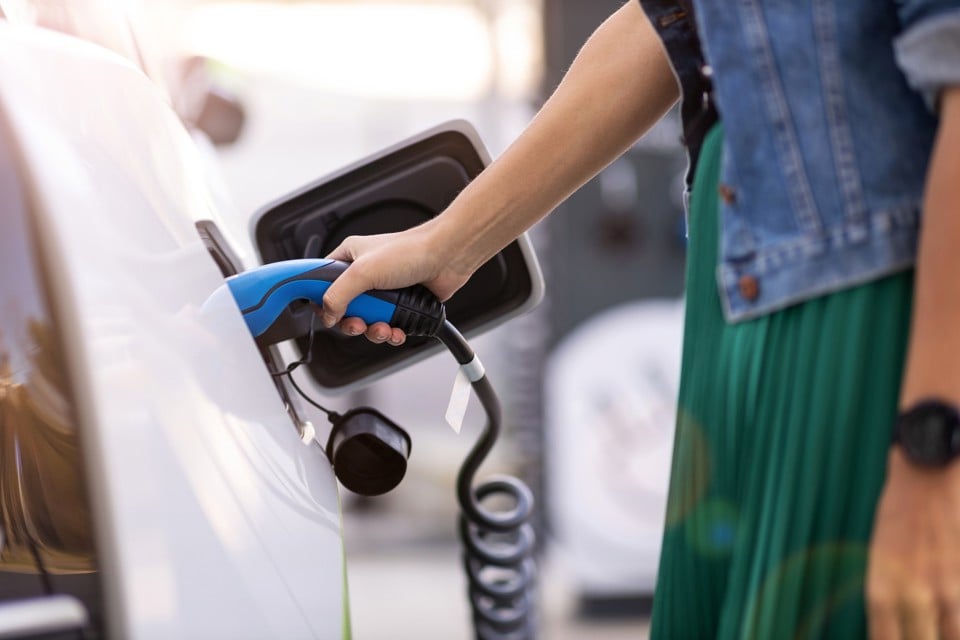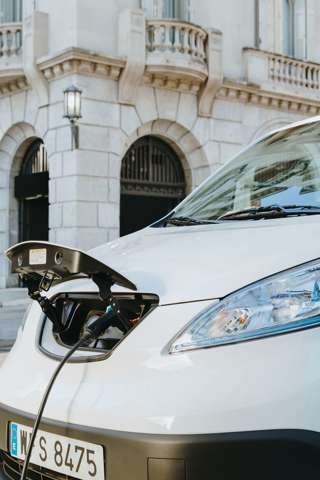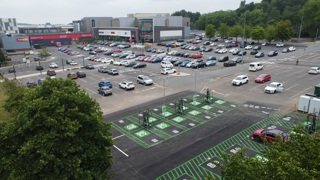The average cost of off-peak ultra-rapid charging an electric vehicle (EV) on the public network has dropped by 8p/kWh, from 60p/kWh to 52p/kWh, new analysis suggests.
Peak charging an EV at these speeds is also cheaper having fallen from 74p/kWh to 67p/kWh, according to figures, from the latest AA EV Recharge Report.
However, the cost of slow charging has gone up with flat rate fixed prices, rising nearly 9%, from 34p/kWh to 37p/kWh.
While some cheaper off-peak ultra-rapid charging is available to drivers from 6pm to 8pm, other chargers switch to off-peak only after 8pm.
Jack Cousens, head of roads policy at the AA, said: “EV owners are still reaping the benefits of cheaper per mile motoring, and this could improve further if energy costs are to fall later in the year.”
An increasing number of charge point operators (CPOs) have deployed dynamic pricing across their public networks, offering drivers lower rates for charging at off-peak hours, and higher prices during times of peak demand, due to high wholesale electricity costs.
Cousens says that the recent shift in peak and off-peak charging prices for ultra-rapid devices provides “brilliant value for money”.
However, the AA says that the Chancellor missed the opportunity in the Budget to further increase the appeal of EVs by failing to cut VAT on public charging and not promoting more spending on increasing the public charging network.
Public charging carries a VAT rate of 20%, but domestic energy use is just 5%.
The AA has been calling on the Government to reduce the VAT on public charging to 5% to help the two fifths (40%) of households that do not have any form of dedicated off-street parking and are solely reliant on the public charging network.
By failing to equalise the rates, the so-called ‘Kerb Tax’, a two-tier system is automatically created between those that have a driveway and those who don’t, it says.
Cousens continued: “The Chancellor missed a golden opportunity to boost the EV revolution. With new EV sales only increasing, the Budget was the moment to significantly invest in the public charging network while correcting the ‘Kerb Tax’ of mismatched VAT rates."
Flate rates
| Charge Type | Speed |
Feb Ave (p/kWh) |
Jan Ave (p/kWh) |
Difference (p/kWh) |
Cost to Charge 80%* |
Pence per Mile (p/mile) |
| Domestic | Up to 7kW | 34 | 34 | 0 | £13.60 | 7.64 |
| Slow | Up to 7kW | 37 | 34 | 3 | £14.80 | 8.31 |
| Fast | 8-22kW | 53 | 53 | 0 | £21.20 | 11.91 |
| Rapid | 23-100kW | 66 | 66 | 0 | £26.40 | 14.83 |
| Ultra-rapid | 101kW+ | 71 | 71 | 0 | £28.40 | 15.96 |
Source: AA EV Recharge Report, February 2023.
| Charge Type | Speed |
Feb Ave (p/kWh) |
Jan Ave (p/kWh) |
Difference (p/kWh) |
Cost to Charge 80%* |
Pence per Mile (p/mile) |
| Slow Off-peak | Up to 7kW | 37 | 37 | 0 | £14.80 | 8.31 |
| Slow Peak | Up to 7kW | 72 | 72 | 0 | £28.80 | 16.18 |
| Fast Off-peak | 8-22kW | 57 | 57 | 0 | £22.80 | 12.81 |
| Fast Peak | 8-22kW | 75 | 75 | 0 | £30.00 | 16.85 |
| Rapid Off-peak | 23-100kW | 57 | 57 | 0 | £22.80 | 12.81 |
| Rapid Peak | 23-100kW | 75 | 75 | 0 | £30.00 | 16.85 |
| Ultra-rapid Off-peak | 101kW+ | 52 | 60 | -8 | £20.80 | 11.69 |
| Ultra-rapid Peak | 101kW+ | 67 | 74 | -7 | £26.80 | 15.06 |
Source: AA EV Recharge Report, February 2023.
Average prices are the PAYG options without connection fee as of February 26, 2023. Subscriptions are available for all charge point speeds which can unlock a cheaper p/kWh, however rates vary across provider.
*Calculations based on adding 80% to a Vauxhall e-Corsa, 50kW, with a WLTP range of 222 miles. Adding 80% range equates to 178 miles of range.





















Login to comment
Comments
No comments have been made yet.